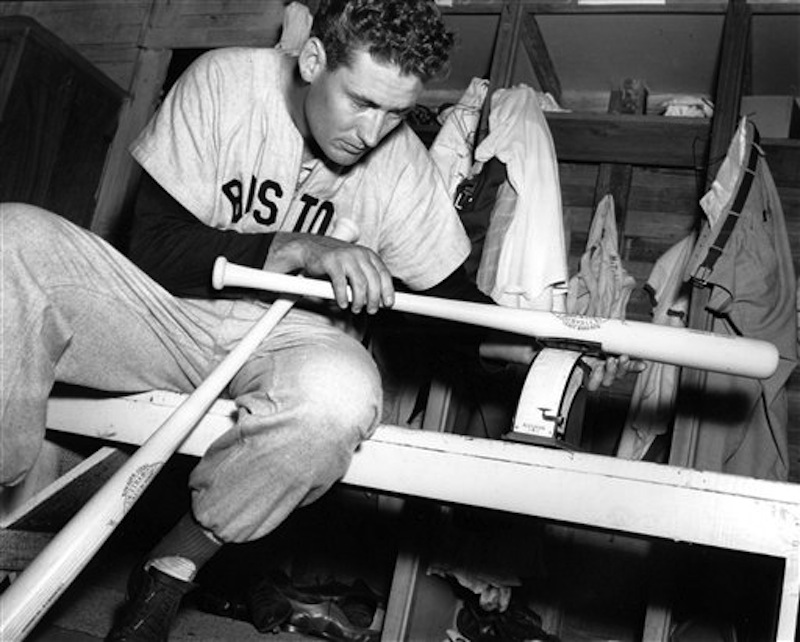Part of what makes baseball such a wonderful game is that it supplies answers in an uncertain world. Ask a group of people to identify the best novel, most delicious dessert or smartest president and you’ll invite a debate that ultimately fizzles in a lack of measurable comparisons. But who is the greatest hitter ever play?
Here we get help, because as much as baseball features drama and intensity, it’s also a game of precision and repetition, which lends itself to statistical analysis. And therefore, this conclusion: Ted Williams, who played for the Boston Red Sox from 1939-60, is the best-ever hitter.
In the 1941 season, Williams — an irascible perfectionist known as the Kid, the Splendid Splinter and Teddy Ballgame — had a .406 batting average. Hitting a major league baseball is a notoriously difficult act. Williams is the last big leaguer to break .400. Judged by today’s depth of pitching talent, love of home runs and commensurately high strikeout totals, perhaps his feat will never be duplicated. Current stars struggle over the course of a long season to stay above .320, or even .300, while the entirety of the league hits about .250.
Williams, the subject of a recent PBS documentary, was a gifted athlete with lightning-fast wrists, better than 20/20 vision and a graceful left-handed swing. The Splinter was an imperfect person, quick to anger, who seemed to take out his frustrations on the little white ball. But he was also an obsessive who contemplated issues of technique and strategy so much that he wrote a revered book, “The Science of Hitting.”
What fascinates us is the documentary’s character study of a proven perfectionist. “All I want out of life is that when I walk down the street folks will say, ‘There goes the greatest hitter who ever lived,'” Williams once said. He hit for a career average of .344, with 521 home runs — and that was having missed three prime seasons for military service during World War II, plus more time away during the Korean War. Only Babe Ruth’s hitting prowess compares to Williams’.
Williams was generous away from the game but picked fights with sports reporters and had such a tempestuous relationship with fans he swore off tipping his cap after home runs. He chose single-minded focus on swinging the bat over nurturing or repairing his relationship with the public. Even when he hit a homer in his last plate appearance before retirement in 1960, Williams refused to acknowledge the cheers at Boston’s Fenway Park. “Gods do not answer letters,” is how the writer John Updike explained Williams’ stubborn aloofness in a famous New Yorker magazine article.
Does the attainment of a history-making achievement require such fanatical, even disagreeable dedication to craft? Maybe it doesn’t, but the baseball record books suggest that maybe it does.
Editorial by the Chicago Tribune
Visit the Chicago Tribune at www.chicagotribune.com
Distributed by Tribune Content Agency, LLC.
Copy the Story LinkSend questions/comments to the editors.



Success. Please wait for the page to reload. If the page does not reload within 5 seconds, please refresh the page.
Enter your email and password to access comments.
Hi, to comment on stories you must . This profile is in addition to your subscription and website login.
Already have a commenting profile? .
Invalid username/password.
Please check your email to confirm and complete your registration.
Only subscribers are eligible to post comments. Please subscribe or login first for digital access. Here’s why.
Use the form below to reset your password. When you've submitted your account email, we will send an email with a reset code.